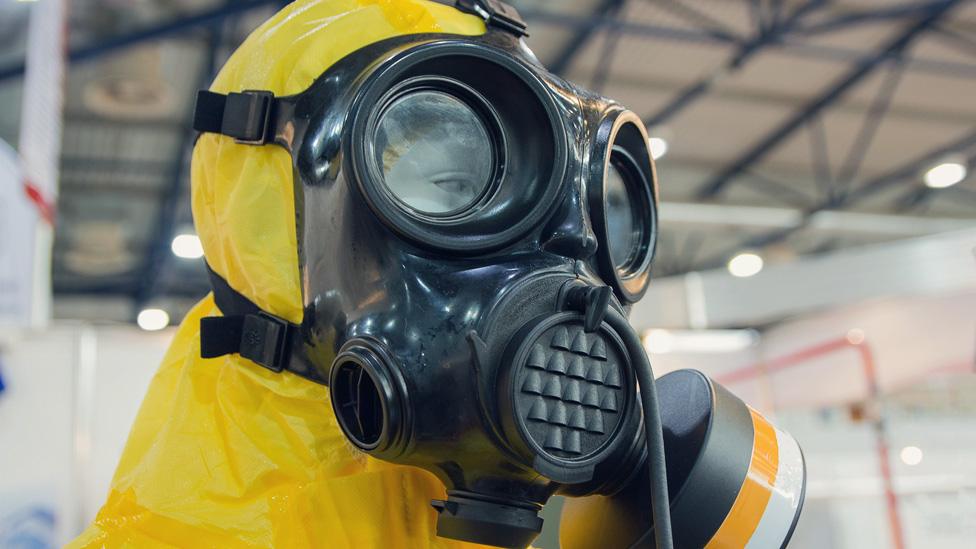Amesbury poisoning: Experts begin testing for Novichok
- Published

Specialist officers investigate the location in Salisbury, Wiltshire, where Sergei and Yulia Skripal were found
International chemical weapons experts have finished the initial phase of investigations into Novichok poisoning in Amesbury.
Dawn Sturgess died and Charlie Rowley remains critically ill after being poisoned by the nerve agent.
A team from the Organisation for the Prohibition of Chemical Weapons (OPCW) was called in to independently identify the substance used.
They returned to the Hague on Wednesday with collected samples.
The global watchdog will now analyse the substance before reporting back its conclusions.
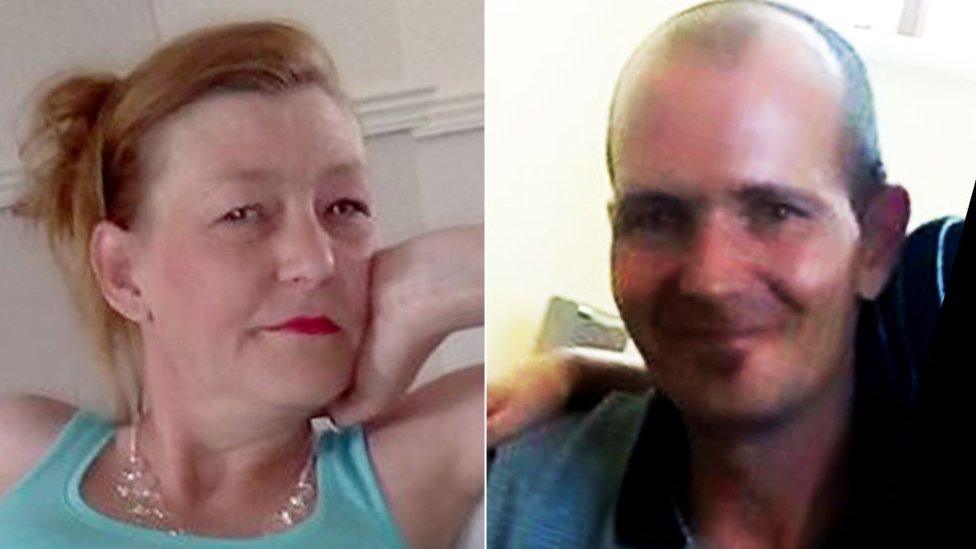
The couple touched a contaminated item with their hands
The scientists are trying to determine whether the Novichok that poisoned the couple was from the same batch used in the attempted murder of former double agent Sergei Skripal and his daughter Yulia in Salisbury in March.
Last week counter-terrorism detectives revealed they had found a small bottle containing Novichok at Mr Rowley's home in Muggleton Road, Amesbury.
They are trying to establish where the container, thought to be a bottle of perfume , originated from, and how Mr Rowley and Ms Sturgess first encountered it.
Meanwhile specialist police officers are carrying out a fingertip search of a park within the cordoned-off area with a view to re-opening it to the public.
Wiltshire Police said officers would check the grounds of Queen Elizabeth Gardens in Salisbury and remove key items of waste and litter as part of the search.
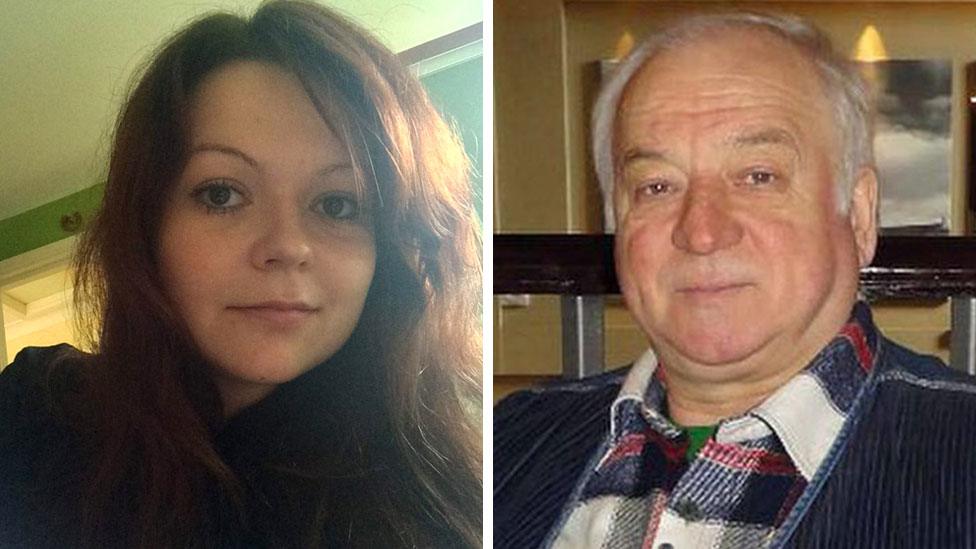
Sergei Skripal, 66, and his daughter Yulia, 33, are still recovering from exposure to Novichok
Deputy Chief Constable Paul Mills said: "We are intentionally undertaking a detailed and meticulous search so that the public can return to using the gardens with confidence when they are reopened.
Mike Wade, Public Health England deputy director for health protection in the South West, said the risk to the public remains low.
He said: "The advice remains - if you didn't drop it, then don't pick it up."
- Published9 July 2018
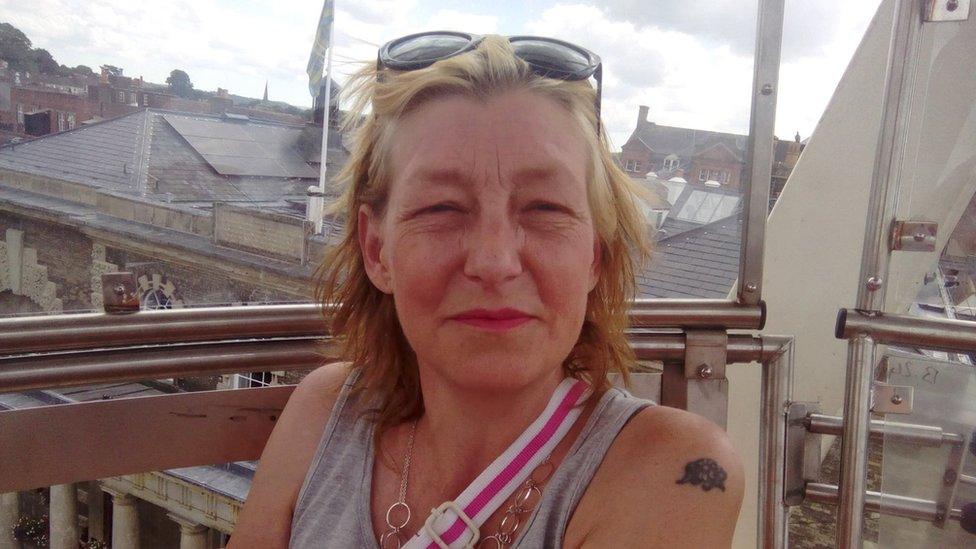
- Published27 September 2018
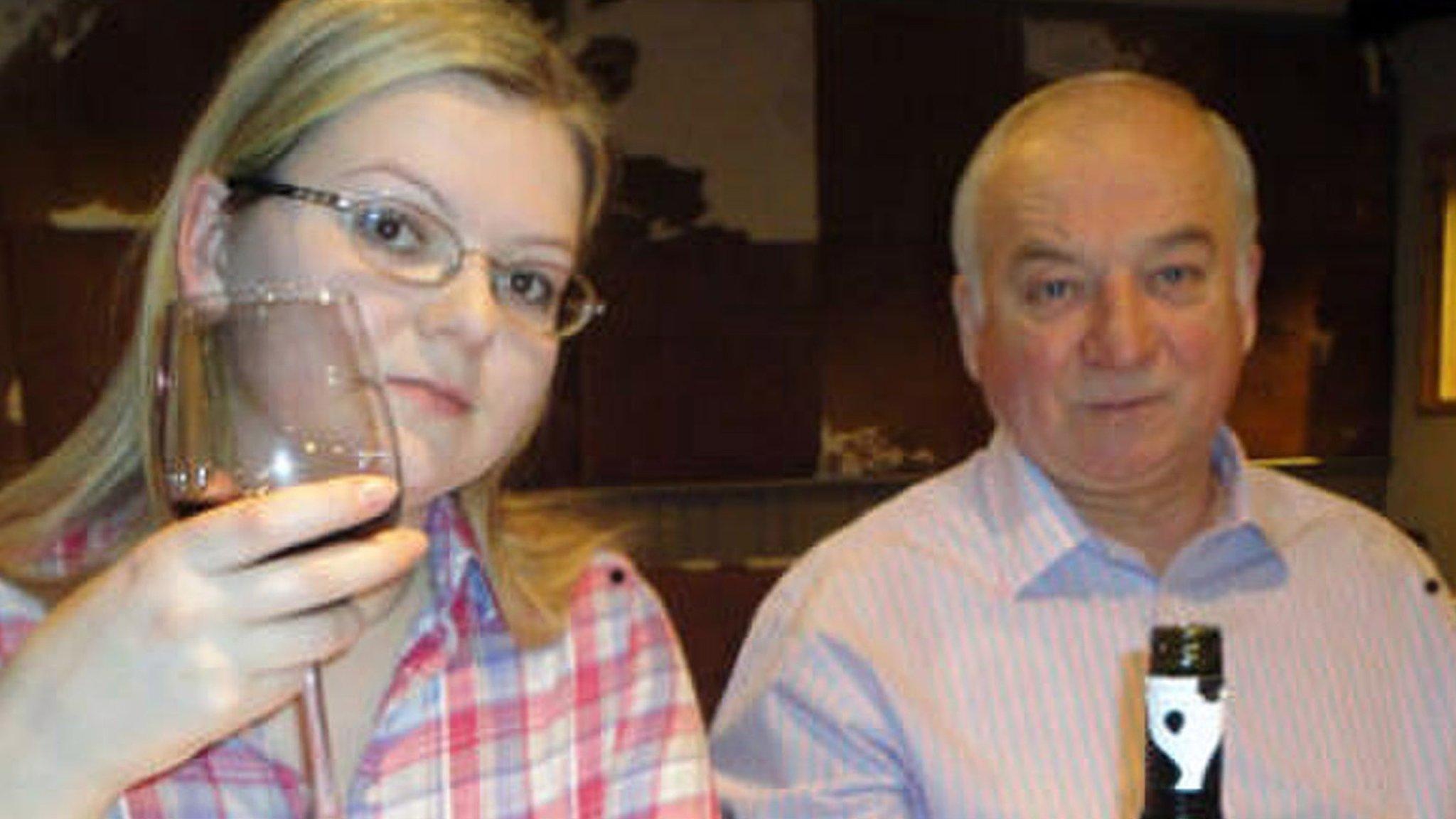
- Published4 April 2018
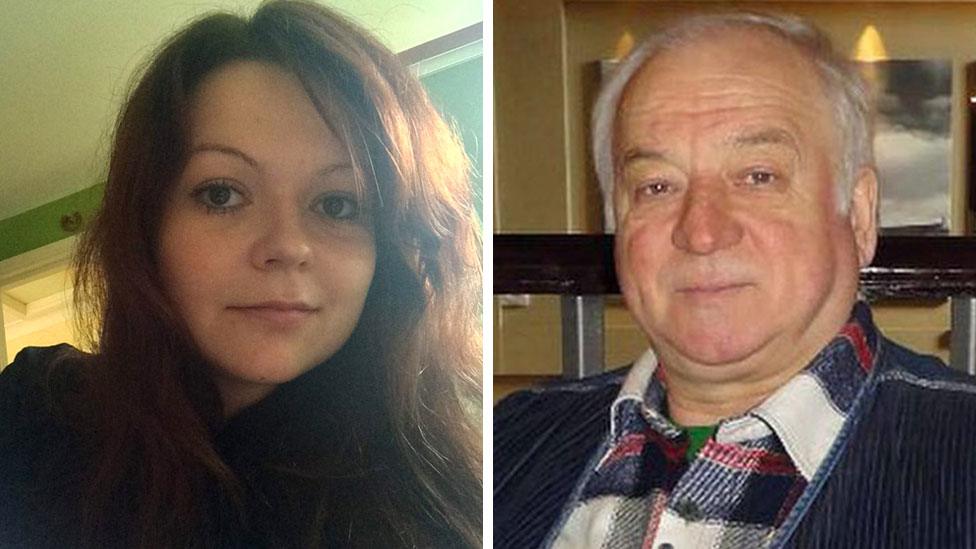
- Published20 March 2018
